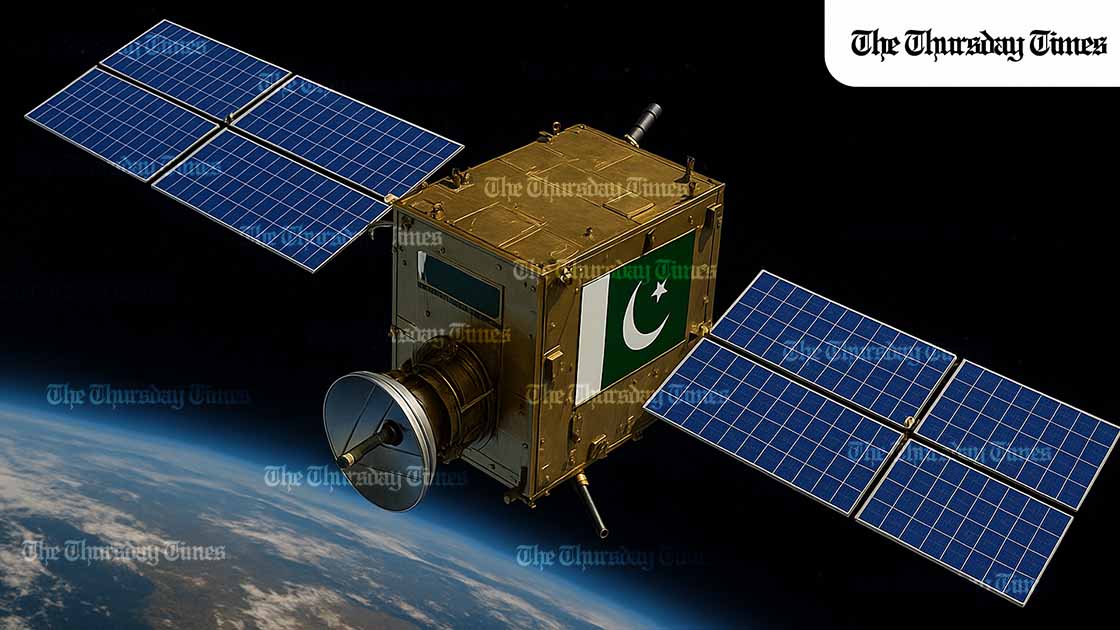ISLAMABAD (The Thursday Times) — Pakistan’s newly launched PRSS-II satellite promises to reshape national capabilities in climate monitoring, disaster response, agriculture, and urban planning, reflecting a renewed push for space-based environmental resilience and technological self-reliance.
Pakistan has successfully launched its second remote sensing satellite, PRSS-II, into orbit from China’s Xichang Satellite Launch Centre on 31 July 2025, according to a statement from the Space and Upper Atmosphere Research Commission (SUPARCO). The launch, facilitated in partnership with Chinese space agencies, marks a significant expansion of Pakistan’s domestic space infrastructure.
The PRSS-II is designed to serve as a multi-sectoral monitoring tool, capable of producing high-resolution imagery across a variety of domains. Officials say the satellite will enhance Pakistan’s disaster preparedness by allowing for real-time assessments following events such as floods and earthquakes. This will aid national and provincial authorities in planning rapid response and recovery strategies.
Beyond disaster relief, the satellite is expected to revolutionise urban planning in major cities by tracking land use, infrastructure development, and traffic flow. The collected data will help city planners develop more sustainable and efficient urban layouts, including road networks and housing projects.
One of PRSS-II’s core objectives is water resource management. It will monitor river flows, detect flood risks, and oversee the health of reservoirs. These insights are expected to support long-term water security, particularly in drought-prone and agriculturally dependent regions.
The satellite is also tailored to support Pakistan’s agricultural sector. It can assess crop health, detect early signs of stress, and predict yields, enabling policymakers and farmers to make more informed decisions. SUPARCO noted this function will be vital in boosting food security amid climate volatility.
In the environmental domain, PRSS-II will monitor glacial melt, soil degradation, and long-term climate patterns. It will contribute valuable data to Pakistan’s ongoing efforts to understand the domestic impacts of global warming, particularly in the Himalaya-Karakoram region.
The satellite will also track illegal deforestation and assess the health of the country’s forests. This function aims to support conservation efforts and ensure more rigorous enforcement of environmental laws.
SUPARCO hailed the PRSS-II as a landmark in Pakistan’s pursuit of self-reliance in space technology and environmental governance. It said the launch is part of a broader national vision to use space-based tools to address some of the country’s most pressing developmental challenges.





